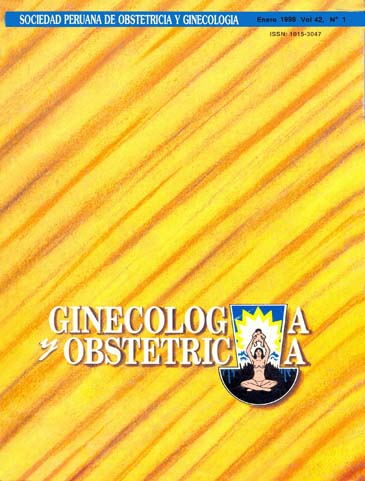Malaria and pregnancy: Report of two cases
DOI:
https://doi.org/10.31403/rpgo.v42i1786Abstract
The basic health needs of women are manifested from childhood and are influenced by nutrition, socioeconomic status and sex role (the role assigned by society) and the environment. Under these assumptions, reproductive health is closely linked to the basic and fundamental rights of the person. According to WHO, health is a state of complete physical, mental and social well being and not merely the absence of disease. According to this universal principle, reproductive health means: everyone has the right to reproduce and regulate their fertility, with the full knowledge of the personal and social consequences of their decisions and also has free access to the media that implanted; Women must be able to carry out necessary pregnancy and childbirth safely and that the end result is satisfying and family welfare; the couple should be able to have sex, free relations means unwanted pregnancy or contracting a sexually transmitted disease.Downloads
Download data is not yet available.
Downloads
Published
2015-08-03
How to Cite
García, J. (2015). Malaria and pregnancy: Report of two cases. The Peruvian Journal of Gynecology and Obstetrics, 42(1), 59–65. https://doi.org/10.31403/rpgo.v42i1786
Issue
Section
Casos Clínicos
















